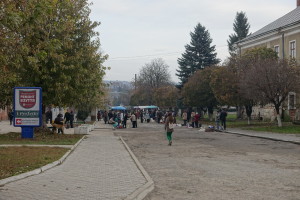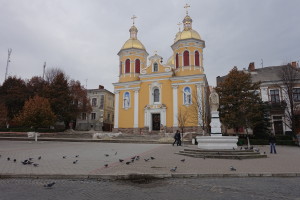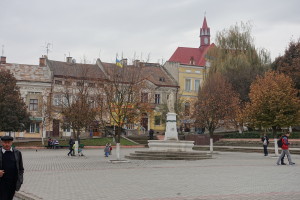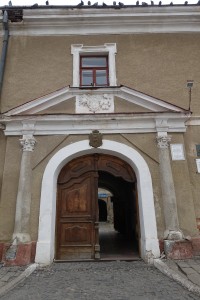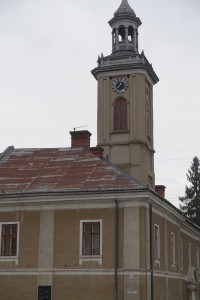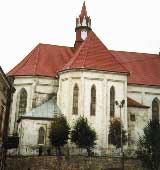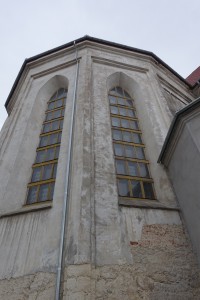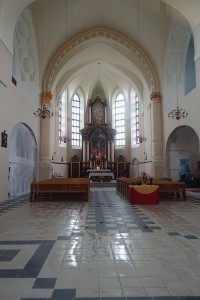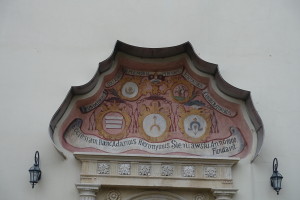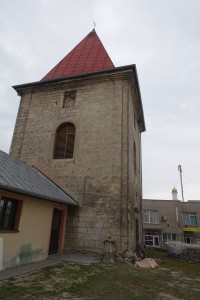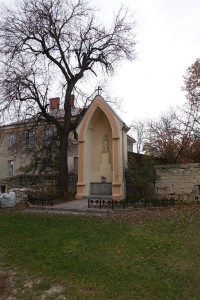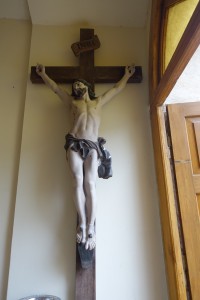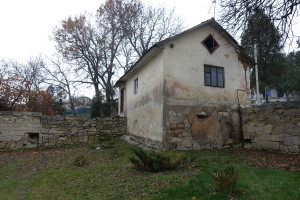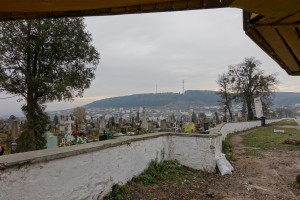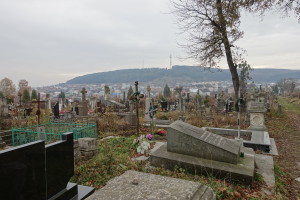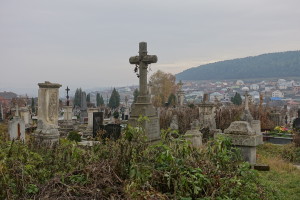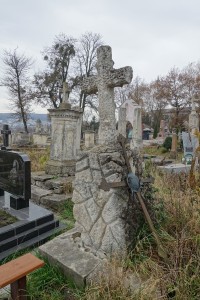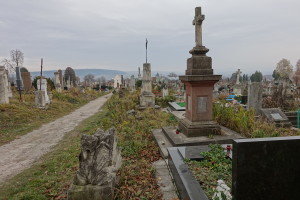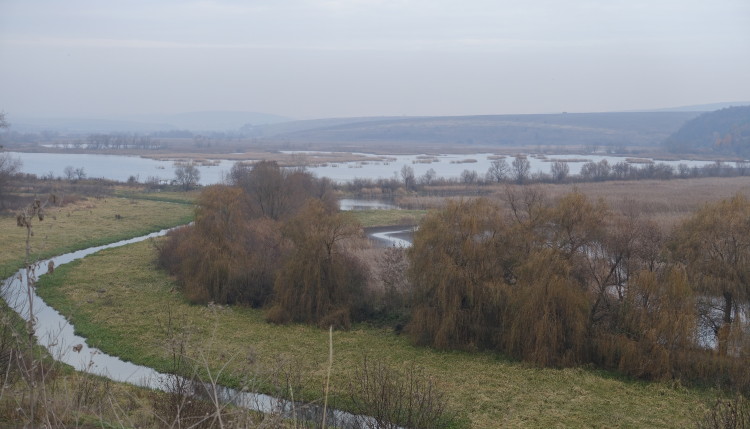
Berezhany: land of my great grandparents.
I’m here. If alive, my grandmother would be crying tears of joy that I valued her life and her family lineage so much that I traveled thousands of miles to learn more them. Though Berezhany (a town of less than 20,000) began almost a thousand years ago, life today isn’t too different. A local market in the center of town was filled with sellers of milk in containers of all shapes and sizes; eggs in home made boxes; potatoes, carrots, beets and onions; and carefully sewn or knit items. Groups of residents gathered in small groups to talk amongst themselves: local news or gossip matters not. One learned anything and everything right here. As an outsider wearing “western” style clothing, I drew unwelcome attention but unlike in Istanbul, I felt safe. My mission is to learn as much as possible in the few hours I had before the long drive back to L’Viv.
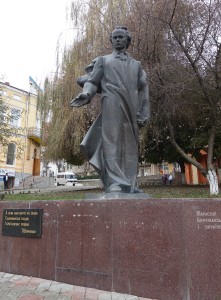
Markiyan Shashkevych was a priest of the Ukrainian Greek-Catholic Church, a poet, a translator, and the leader of the literary revival. author of famous literature of Ukraine.
Though government officials were unavailable, our guide and interpreter explained my long journey and desire to discover ancestors from this area.
Speaking to city officials in the Mayor’s office we learned that all official records prior to WWII were either destroyed, moved to Poland, Germany, Austria, or Russia, or perhaps in a centralized location in L’viv. Looking at possible records and finding none, I’m not defeated. Before I even began this endeavor I knew records in this area of the world are difficult (if not impossible) to find. Names were inadvertently changed in the immigration records or deliberately altered to protect the families remaining in the Ukraine during dangerous transitions from invading countries.
Most residents considered themselves Orthodox Christians while a few were Catholic and even fewer, of Jewish ancestry. Since a few records might be kept by local parishes we walked almost an hour uphill to talk to the priest at the catholic church, and then to visit the one central cemetery.
Built hundreds of years ago, I wonder if any of my ancestors worshipped in this particular church.
The few gravestones readable are written in other languages. Grave sites are not protected. If one is “old enough” (unreadable) it is possible to remove the one buried and use the space for a recent deceased (with a new gravestone). They are also stacked beside one another or on top of one another. When asked how this is possible, my guide shrugged. This is just how it is done.
As we stood next to this cemetery we looked over at an elderly woman as she struggled to hang clothing on a line in her backyard. Our guide spoke to her in Ukrainian; told of my travels from America; and asked if she knew of anyone by the name of Melinchuch, Woznick or Havriluk (unsure of English spelling as the names are spoken in the Ukrainian language). With her gray hair pulled back and covered in a scarf she walked over to the fence separating her from the roadway and eagerly began talking with our guide. She recalled the family names but didn’t know of any living in the town now. Tears flowed down her cheeks as she weeped about the men leaving the area for Canada, the USA and other countries to escape the Russians and Germans rounding up the men for conscription in the various military regimes. Over and over men came to gather up any available bodies to fight in whatever military needed them. Apparently, her own father escaped at night and then never returned or wrote letters to her mother (and herself as a very little girl at the time). Names of the men were changed to protect families still left in Ukraine. She cried as she spoke passionately about the men running away or facing captivity and certain death.
Apparently, letters never arrived from the men who left for fear the mail was confiscated resulting in persecution (for those remaining behind), death or worse, sent to Siberia. They never heard from her father though they knew he went to Canada. She begged us to find out what happened to him. Rumors that he started a new life there by marrying another woman and having other children. Sadly, her own mother struggled with her young girl and never discovered what really happened to her husband. Today this very elderly woman survived on a meager subsistance from the government. Her father escaped and began a new life without thought to his family left behind. I thought about my ancestors and how different the family would look if only the men escaped without the mothers and children. My great grandmother was a child when she escaped with her family.
I felt the woman’s pain through her tears.
People didn’t want to be found if they escaped one of the wars.
